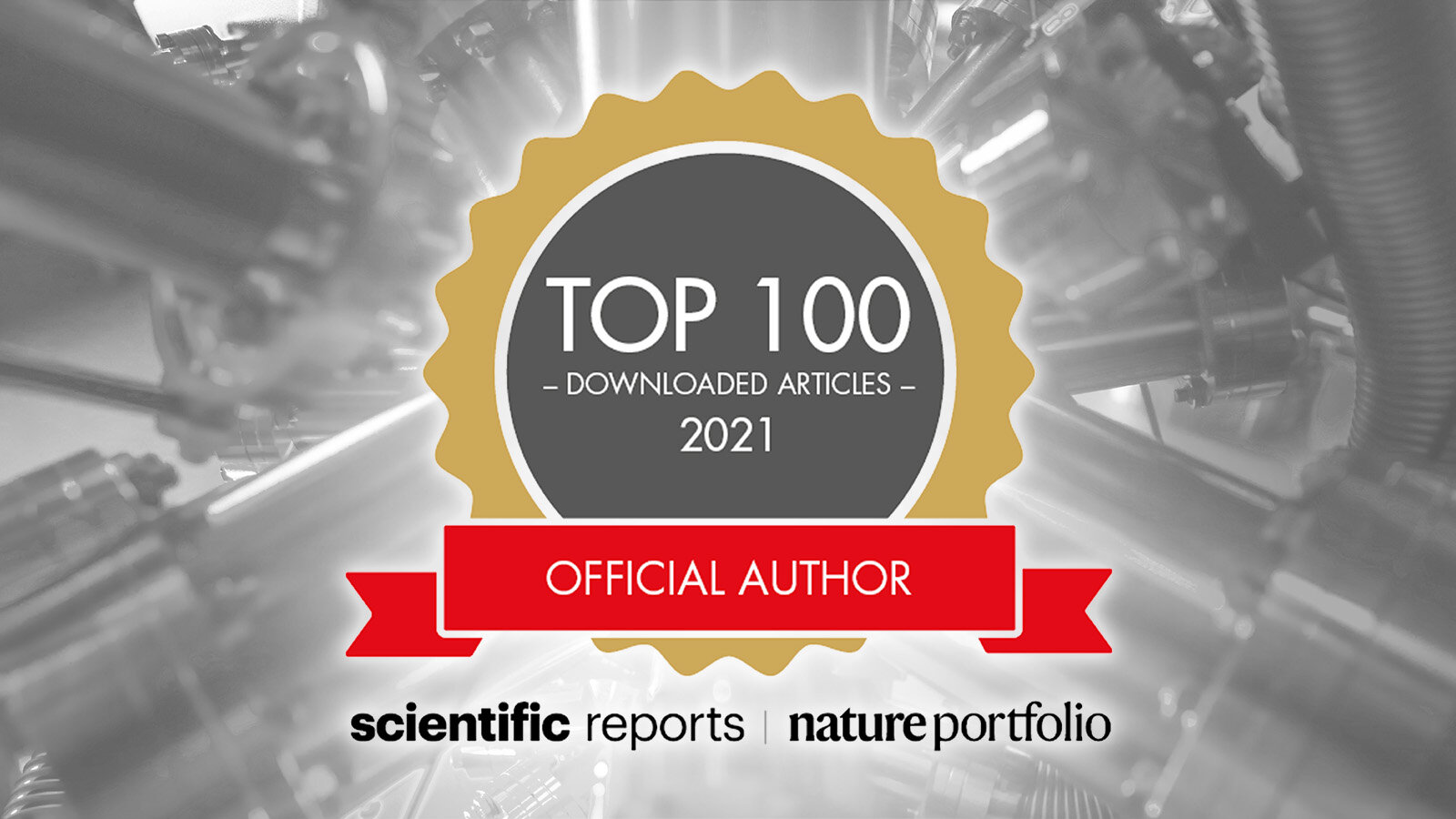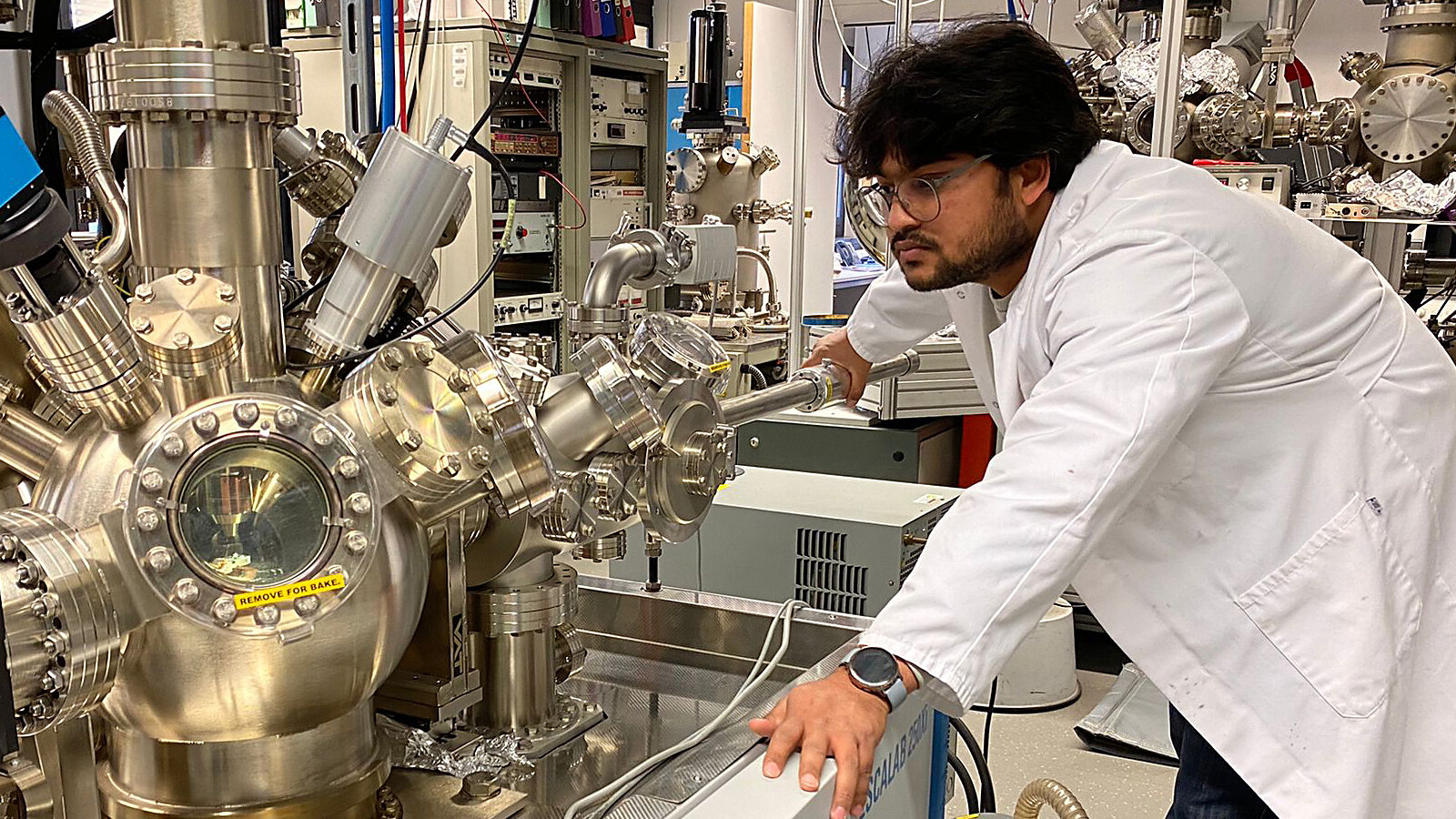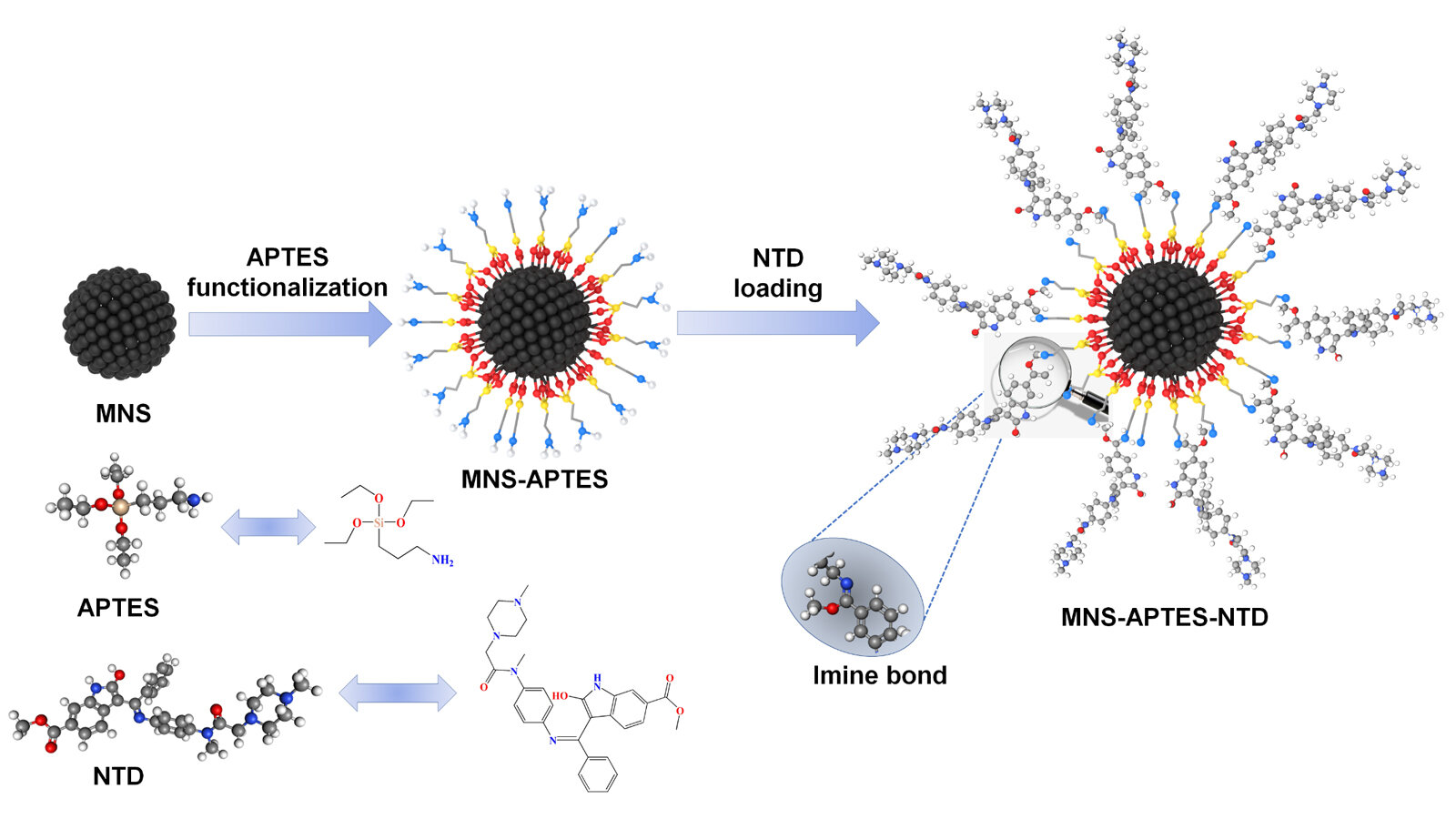Research on the Use of Magnetic Nanoparticles for Cancer Therapy Receives Highest International Attention
Publication of research team of Chemnitz University of Technology and Shivaji University (India) among the top 100 downloaded articles 2021 in the chemistry section of Scientific Reports published by Nature
-

The publication of Chemnitz University of Technology and Shivaji University on the effect of magnetic nanoparticles in cancer therapy was downloaded particularly often in 2021 and has now received an award for it. Graphic/Collage: Springer Nature/Jacob Müller -

apl. Prof. Dr. Georgeta Salvan and Prof. Dr. Dietrich R.T. Zahn from the Professorship of Semiconductor Physics at Chemnitz University of Technology present results of their research on the effect of magnetic nanoparticles in cancer therapy in the awarded paper. Photo/Collage: Georgeta Salvan (private) and Lili Hofmann / Jacob Müller -

Dr. Apoorva Sharma from the Chair of Semiconductor Physics at Chemnitz University of Technology is one of the authors of the awarded paper. Photo: Professorship Semiconductor Physics -

Protonation and release of NTD from the MNS-APTES-NTD nanoformulation. Image: APTES monolayer coverage on self-assembled magnetic nanospheres for controlled release of anticancer drug Nintedanib by V. C. Karade et al. Sci Rep 11, 2021. Springer Nature (CC BY)
A joint research paper from Chemnitz University of Technology and Shivaji University (India) titled APTES monolayer coverage on self-assembled magnetic nanospheres for controlled release of anticancer drug Nintedanib was downloaded 4,458 times last year. This puts the paper among the top most accessed papers in the peer-reviewed journal Scientific Reports, published by Nature. Peer review means that each paper has been independently reviewed. Scientific Reports features the corresponding paper from Chemnitz University of Technology and Shivaji University in the top 100 of the chemistry collection for 2021. In 2021, a total of 1,280 articles were published in Scientific Reports in the chemistry section.
The authors of the paper include apl. Prof. Dr. Georgeta Salvan and Dr. Apoorva Sharma from the Professorship Semiconductor Physics (Head: Prof. Dr. Dietrich R.T. Zahn), Prof. Dr. Dietrich R.T. Zahn and Prof. Dr. Prashant Patil and Dr. Ashok Chougale from Shivaji University.
The article deals with the synthesis of magnetic drug carriers for cancer therapy. The team investigated whether self-assembled magnetic nanoparticles can improve the effect of the anticancer drug Nintedanib. In doing so, the researchers showed during in vitro cytotoxicity studies - i.e. studies on cancer cells in the laboratory - that there is a dose-dependent activity of the functionalized nanoparticles for human lung cancer cells. At a concentration of 100 μg/ml (micrograms/milliliter) of the nanoparticle solution, a reduction in the cellular viability of the cancer cells by about 75 percent was observed.
"This work demonstrates the successful loading of an ensemble of magnetic nanoparticles with an anticancer drug that is poorly soluble in water and thus difficult to administer," says Prof. Salvan. Prof. Zahn adds "What is special about these magnetic nanoparticles is that the self-assembled magnetic nanoparticles retain high stability under normal physiological conditions and this inhibits the drug release. In an environment with a pH similar to a cancer cell, a controlled release of the drug then takes place."
As a result, the authors are convinced that the higher magnetization of the studied nanoparticles can be useful for many other applications in nano-biotechnology, for example, in the fabrication of devices for magnetoresistive biosensors or in nano-biocatalysis.
Publication: Karade, V.C., Sharma, A., Dhavale, R.P. et al. APTES monolayer coverage on self-assembled magnetic nanospheres for controlled release of anticancer drug Nintedanib. Sci Rep 11, 5674 (2021).
DOI: https://doi.org/10.1038/s41598-021-84770-0.
(Source: Professorship of Semiconductor Physics / Translation: Brent Benofsky)
Matthias Fejes
25.04.2022




